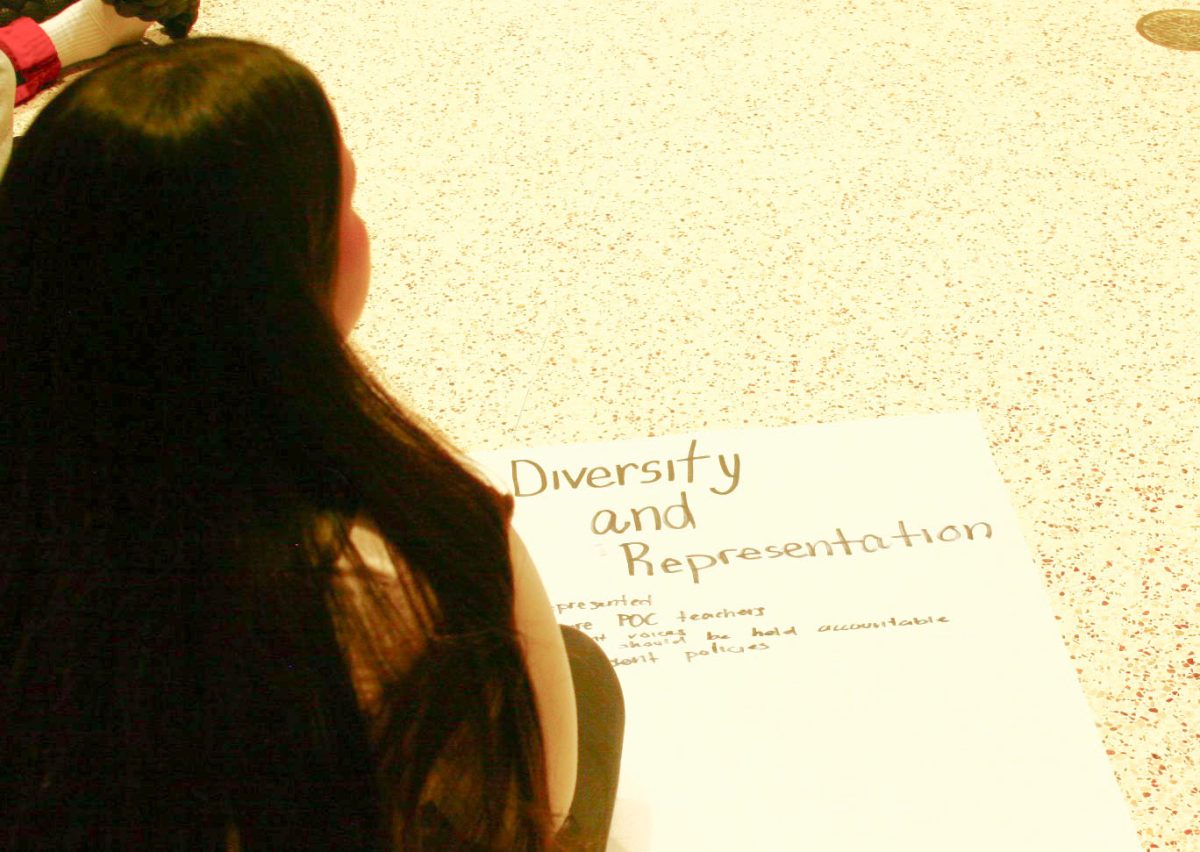Senior year should be a time to celebrate, football games, prom, last firsts and taking in every last moment before graduation from high school. But there is a weight on students during this year that is less talked about. The pressure from college preparation can be so heavy, and it can feel like everything is dependent upon that huge decision that will affect our future.
The college application part of high school can feel like a full-time job, and many schools are looking for something different: one school requires three essays, another school likes a video response and one school has a portal so complicated it might as well be a different language.
“The most stressful part is the college application process itself, then waiting to hear back from colleges, and trying to figure out whether or not you have financial aid too,” senior Greta Selbitschka said.
The personal statements written in senior English classes in the fall are intended to summarize life experiences in a few paragraphs that sound meaningful and unique, but not too deep or pretentious. The stress of one minimal sentence feels like an entire career strategy is ruined. Applications require students to describe their leadership experience, define their passions, reflect on their goals, and submit impressive grades all at once. It can also feel impossible to keep up with the volume of work before deadlines hit.
A survey by Pathlight Mood & Anxiety Center found that “73% of students worry that small mistakes could hurt their chances of getting in.”
Deadlines can come in waves. One minute it is October, the next it is November, and suddenly everything is due. The application information blurs into a chain of edits on essays, requests for recommendation letters, and last-minute submissions at midnight. At times, for students applying to many schools, it seems like there is little oxygen in the room. There is pressure from the sheer volume of applications. The cost of applications continues to add serious pressure. Many students give up applying to their dream schools simply due to cost. Between application fees and testing fees, it adds quite a lot of pressure.
According to a survey by EAB, “Nearly one-third (28%) of high school students who are currently applying or considering applying to college cite mental health concerns as a reason they may choose to delay enrollment or opt out of college entirely.”
While all of this is going on, school is always present. Teachers still assign essays, labs and projects. Seniors have no special vacation time during the year just to breathe. Grades matter. It is especially important for schools that want mid-year reports. The fear of having an acceptance revoked due to one poor semester is intense. The responsibility does not stop at just keeping up, there is also the constant expectation to excel and prove that everything is under control, even when everything else feels like it is falling apart.
The world outside class feels different, too. Friend groups begin to shift. Some people know where they are going, college, trade school, gap year, or the military, while others seem lost and behind. Perspectives start to change, and everybody begins talking about what is next. Then there is the comparison game. Who got into where, who is going out of state, who got scholarships, everything. Even those who claim not to care can not help but wonder why they feel behind when others seem to have their futures neatly planned out.
Families add another layer. Some parents are supportive, calm and reflective, while others push hard. First-generation students may carry a weight ten times heavier than their peers. Many are bearing the hopes of a family while also being expected to figure out what is right on a personal level. That fear of disappointing loved ones adds an emotional strain that is not always visible but is deeply felt.
Then there is everything else: sports, jobs, clubs and volunteer hours. Schedules stay congested from morning until night. Free time is practically gone. Rest is often associated more with guilt than anything else. Even in small, intentional breaks, there is often an internal voice whispering, “Is not there something else that should be getting done right now?”
Sleep is not the only thing that goes. Mental and emotional health also take a hit. Nobody talks enough about how stress piles up slowly, then all at once. Sometimes students spend their break time crying in bathrooms. Others stay up past midnight writing the same sentence over and over. It often does not show on the outside, but the pressure hangs in the air like an invisible weight for these teenagers. These kids have all this stress built up, at just 17 or 18 years old.
In the end, adaptability builds with every essay turned in, every class passed and every hard decision made. These moments do not just shape a transcript, they shape character. The stress is high, and so is the growth. It is messy, overwhelming, and sometimes unfair, but this season builds an immense strength.









